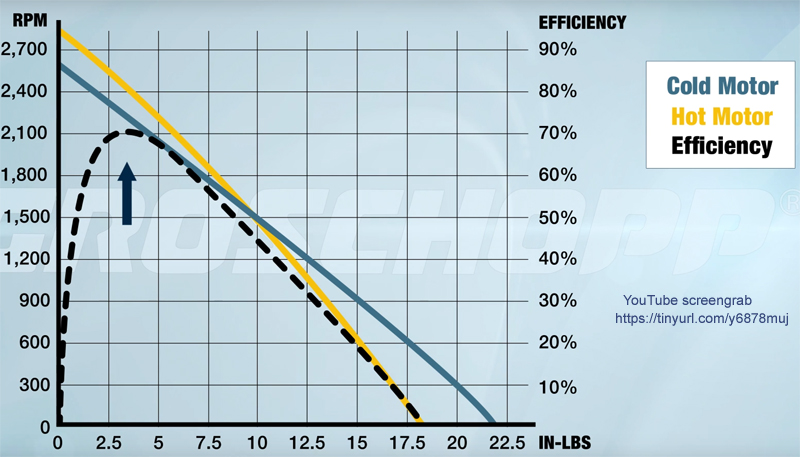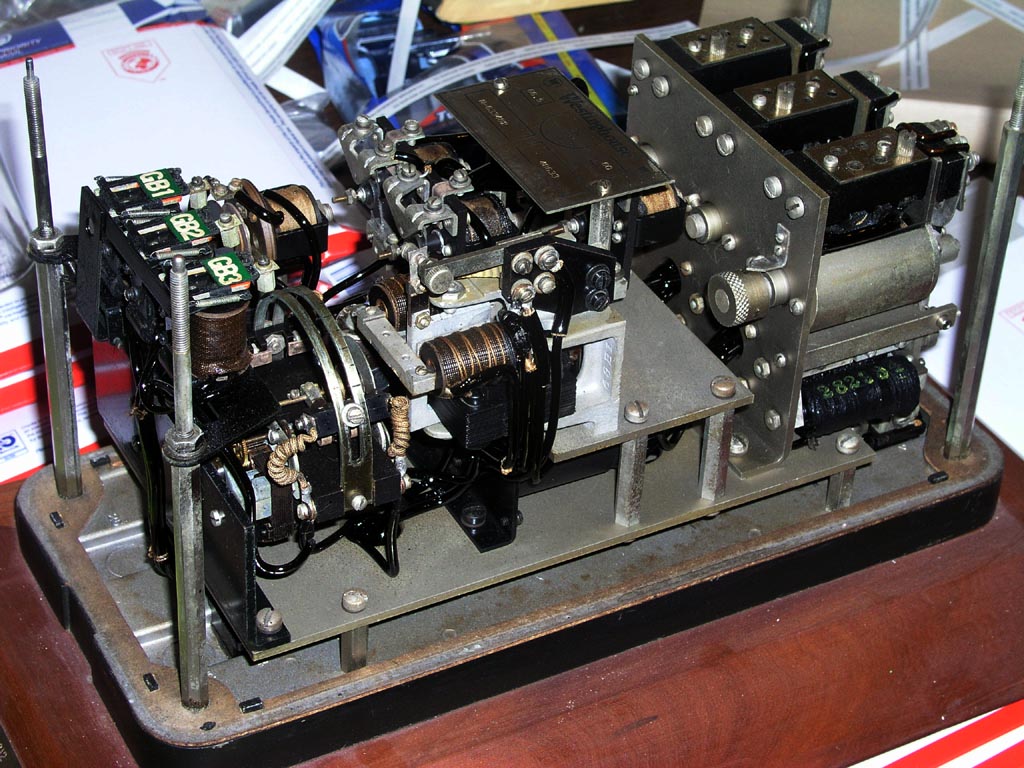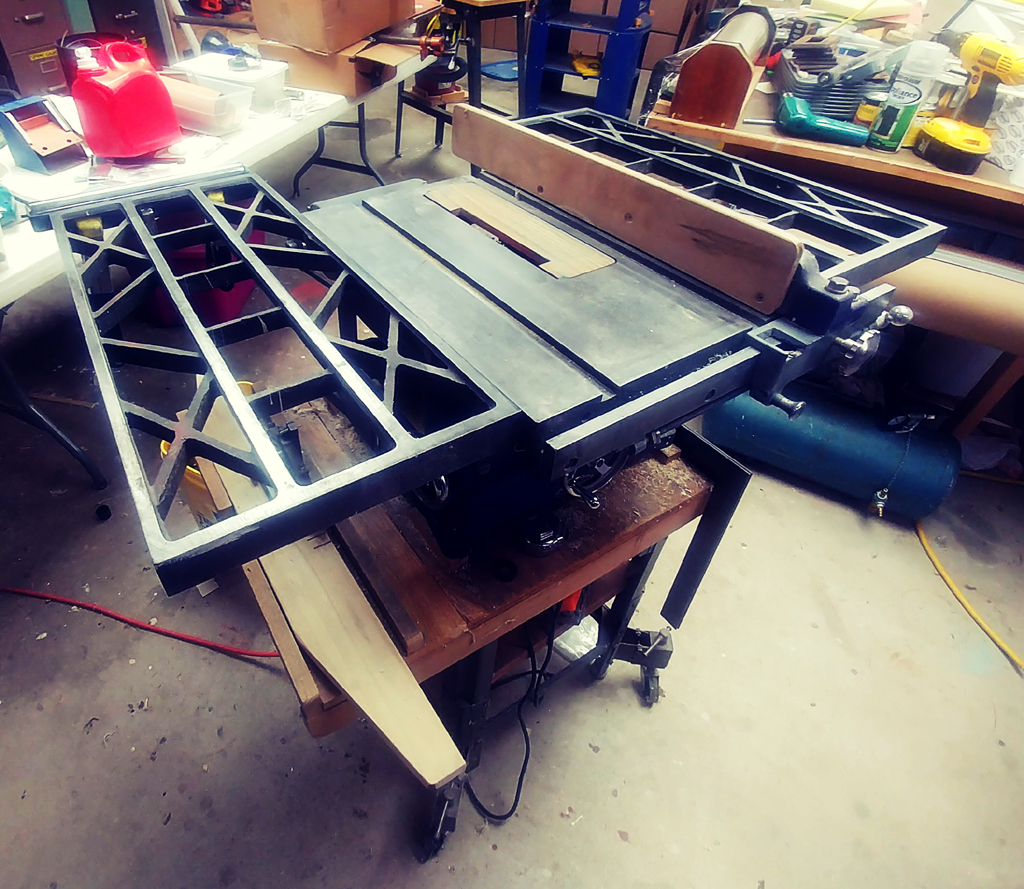 |
Matronics Email Lists
Web Forum Interface to the Matronics Email Lists
|
| View previous topic :: View next topic |
| Author |
Message |
nuckolls.bob(at)aeroelect
Guest
|
 Posted: Thu Jan 07, 2021 12:44 pm Post subject: Monarch EE Anti-Plugging Field Accelerating? Posted: Thu Jan 07, 2021 12:44 pm Post subject: Monarch EE Anti-Plugging Field Accelerating? |
 |
|
At 09:00 PM 1/5/2021, you wrote:
| Quote: | --> AeroElectric-List message posted by: "rparigoris" <rparigor(at)hotmail.com>
Hi Bob Perhaps you can enlighten me a little more how Monarch controls speed on my EE with their hocus pocus. Here's a link to the only schematic I have:
[url=https://1drv.ms/b/s!Ah1S270Nwg9V4St1iHBVNSihPNyL?e=Y3H4UJ] https://1drv.ms/b/s!Ah1S270Nwg9V4St1iHBVNSihPNyL?e=Y3H4UJ[/url]
The huge Ohmite-A-1925 Rheostat (size of a volley ball) controls the field for the motor and generator at the same time. Why not just control the generator field?
At the top of the schematic there is Field Accelerating using a CXG 2105-B and Anti-Plugging using a SD4-2-S-14. What is Field Accelerating? What is Anti-Plugging?
|
I'm taking a guess based on what I know about
motor characteristics. Motor speeds in this machine
are adjusted based on field excitation of the parallel
wound motors. The stronger the field, the slower the
motor. This is kinda cool because the field excitation
control has no effect on armature supply current/volage,
hence a minimal effect on available torque at the
selected speed.
"Plugging" is a motor stopping technique that calls
for reversing power to the armature for milliseconds
after initiating the stop command. It's easy to see
that the initial current flow is quite high . . .
higher than inrush. Further, timing is very important.
If the 'plugging' interval is too long, the motor comes
to a stop before REVERSING until the plugging configuration
is discontinued. I suspect that in this case, anti-plugging
\ features are added so that should the lathe operator
quickly switch from FWD to REV rotation (a clasic
plugging situation), the opposite polarity of motor
drive current is delayed until after normal dynamic
breaking has completed.
This is just a guess. Wiring diagrams for this machine
are not exactly lucid illustrations of functionality.
While no doubt accurate, they are not exactly great
teaching tools! This is a common condition across
a spectrum of suppliers of electrically driven systems
from lawn mowers to . . . well . . . really nice
old lathes!
Are the speed control rheostats on a common shaft?
Bob . . .
Un impeachable logic: George Carlin asked, "If black boxes
survive crashes, why don't they make the whole airplane
out of that stuff?"
| | - The Matronics AeroElectric-List Email Forum - | | | Use the List Feature Navigator to browse the many List utilities available such as the Email Subscriptions page, Archive Search & Download, 7-Day Browse, Chat, FAQ, Photoshare, and much more:
http://www.matronics.com/Navigator?AeroElectric-List |
|
|
|
| Back to top |
|
 |
rparigoris
Joined: 24 Nov 2009
Posts: 797
|
 Posted: Thu Jan 07, 2021 6:22 pm Post subject: Re: Monarch EE Field Accelerating? Posted: Thu Jan 07, 2021 6:22 pm Post subject: Re: Monarch EE Field Accelerating? |
 |
|
Hi Bob
Yes the speed control rheostats are on a common shaft.
I found this link:
https://www.practicalmachinist.com/vb/monarch-lathes/field-acceleration-relay-226109/
I believe it's Field Accelerating that is the hocus pocus I never fully understood too much that I believe helps increase torque?
I read the post in practical machinist several times, still don't fully understanding it.
If the chat and Motor-Generator and Control System Design Schematic help you understand what's going on, an interpretation would be appreciated.
What is Base Speed?
Thx. Ron P.
| | - The Matronics AeroElectric-List Email Forum - | | | Use the List Feature Navigator to browse the many List utilities available such as the Email Subscriptions page, Archive Search & Download, 7-Day Browse, Chat, FAQ, Photoshare, and much more:
http://www.matronics.com/Navigator?AeroElectric-List |
|
|
|
| Back to top |
|
 |
MMiller
Joined: 07 Jul 2016
Posts: 8
|
 Posted: Fri Jan 08, 2021 9:00 am Post subject: Re: Monarch EE Anti-Plugging Field Accelerating? Posted: Fri Jan 08, 2021 9:00 am Post subject: Re: Monarch EE Anti-Plugging Field Accelerating? |
 |
|
That Field Acceleration relay is interesting. Based on its name I assume the relay picks during acceleration. It’s contact shunts the motor field resistance, increasing motor torque. The coil has two windings, with the shunt winding across the fixed exciter voltage and the series winding in the loop circuit. Looking at the diagram the windings appear to be connected differentially so the higher starting current picks the relay, once the motor is up to speed the loop current falls and the differentially connected shunt coil neutralizes the series coil, dropping the relay.
The speed regulation here is not magic. In a DC shunt motor;
armature voltage is proportional to speed.
armature current is proportional to load.
as you weaken the motor field, armature current will rise and RPM will increase.
In a ward Leonard system the motor and generator armatures are in a loop, the generator will output voltage to the motor. The generator voltage is proportional to the generator field current. The field current has two components the shunt field and the series field. The shunt field is set by the operator with the rheostat. The series field has the current of the motor load. As the motor load increases loop current rises, generator field strength increases and the generator output voltage will rise.
| | - The Matronics AeroElectric-List Email Forum - | | | Use the List Feature Navigator to browse the many List utilities available such as the Email Subscriptions page, Archive Search & Download, 7-Day Browse, Chat, FAQ, Photoshare, and much more:
http://www.matronics.com/Navigator?AeroElectric-List |
|
|
|
| Back to top |
|
 |
nuckolls.bob(at)aeroelect
Guest
|
 Posted: Fri Jan 08, 2021 10:22 am Post subject: Monarch EE Anti-Plugging Field Accelerating? Posted: Fri Jan 08, 2021 10:22 am Post subject: Monarch EE Anti-Plugging Field Accelerating? |
 |
|
At 08:22 PM 1/7/2021, you wrote:
"acceleration" implies that this is a dynamic thing
in effect only during changes of velocity . . . either
increasing or decreasing. In this case, it's probably
only a feature of start-up acceleration is proportional
to rotational mass * torque.
Torque: T = k*Ia*Bf =
proportional to armature current * field
flux.
Torque is proportional to field flux x armature
current . . . period. From published schematics,
we see no provisions for controlling armature
excitation . . . all speed control magic happens
with field excitation.
So to speed up the acceleration of this machine's
rotating mass, I'm suspecting that there's s
system in place to apply full field current during
the first tens of milliseconds after turn-on.
Take a peek at the attached exemplar DC
motor curve. Note that for a FIXED applied armature
voltage, motor performance is plotted by a straight
line running from max rpm at zero load to max torque
at zero rpm. This load line has SLOPE that is
defined by LOOP RESISTANCE. Add up all the resistance
for power supply source impedance, wires, brushes and
armature to get total loop resistance.
Divide that value into source voltage and you
get a value of absolute maximum current which
occurs at zero rpm (stall current) which is also
your start-up, inrush current.
Note that at zero rpm, max torque and stall the
available voltage is not changed. There is a FAMILY
of lines, parallel to the blue line that represent
a range of applied voltage. The slope is constant
as long as loop resistance is constant. Note the
yellow plot showing an increase in max rpm at zero
load; drop in torque (and stall current) at zero
rpm. This illustrates a 'hot' motor condition due
to increased resistance of the armature windings
due to temperature.
Let's consider another characteristic:
k
RPM ~ ------------
Bf
Speed is roughly inversely proportional to field flux.
So, if you want to get things moving right smartly,
you apply both full field and uncontrolled full
armature current. This will get you a speedy spin-up
to MINIMUM speed but at maximum torque.
You can then reduce field flux to bring the motor
up to operating speed at reduced torque.
This second characteristic offered a clever
means for controlling the speed of some pretty
beefy motors by fiddling with the relatively
minor field current(s).
| Quote: | | What is Base Speed? |
That's a local vernacular probably unique
to the industry. We do know that at MAX
available voltage you get minimum operating
speed at maximum available torque . . . that
might well be the 'base speed'.
I have a lot of respect for the folks who designed
these machines. With no assist from electronics or
software, they squeezed an amazing amount of
functionality with 1930's technology. Examples
of similar intellectual agility include these
DC generator regulators
http://aeroelectric.com/Pictures/Regulators/Carbon_Pile_1a.jpg
http://aeroelectric.com/Pictures/Regulators/12VN7E_Delco-Remy_3.jpg
Then there's the second picture attached . . .
this piece of equipment is the size of a big
loaf of bread. It contains no electronics. Just
copper, Bakelite and steel. It contains 1 bit
comparators, analog-digital converters, etc. etc.
It's one of several controllers used to manage
a 1930's steam driven megawatt power plant.
The thought processes and talents that brought
your lathe into a practical reality are in the
same class.
Bob . . .
Un impeachable logic: George Carlin asked, "If black boxes
survive crashes, why don't they make the whole airplane
out of that stuff?"
| | - The Matronics AeroElectric-List Email Forum - | | | Use the List Feature Navigator to browse the many List utilities available such as the Email Subscriptions page, Archive Search & Download, 7-Day Browse, Chat, FAQ, Photoshare, and much more:
http://www.matronics.com/Navigator?AeroElectric-List |
|
| Description: |
|
| Filesize: |
202.55 KB |
| Viewed: |
4063 Time(s) |

|
| Description: |
|
| Filesize: |
198.62 KB |
| Viewed: |
4063 Time(s) |

|
|
|
| Back to top |
|
 |
rparigoris
Joined: 24 Nov 2009
Posts: 797
|
 Posted: Sun Jan 10, 2021 3:53 pm Post subject: Re: Monarch EE Anti-Plugging Field Accelerating? Posted: Sun Jan 10, 2021 3:53 pm Post subject: Re: Monarch EE Anti-Plugging Field Accelerating? |
 |
|
Hi Group Thanks to those who replied about brushes and enlightenment how a 1941 Monarch EE works. I certainly have a much better grasp on how it works.
Anyway today I finished up replacing it's 10 brushes and tending to anything that needed to be done. It's working perfectly!
Have owned it since mid 1970s.
Here's a pic. from 2013 when it was in need of a good going over:
https://1drv.ms/u/s!Ah1S270Nwg9VtFmAe2PksSsa9K14
In 2017 gave it the tending to it needed. Took several months. Here's a pic. from today:
https://1drv.ms/u/s!Ah1S270Nwg9V4VH1Kt1w_kil96gs
Managed to fill it with chips today and retrieve resultant aeroplane parts.
Ron P.
| | - The Matronics AeroElectric-List Email Forum - | | | Use the List Feature Navigator to browse the many List utilities available such as the Email Subscriptions page, Archive Search & Download, 7-Day Browse, Chat, FAQ, Photoshare, and much more:
http://www.matronics.com/Navigator?AeroElectric-List |
|
|
|
| Back to top |
|
 |
nuckolls.bob(at)aeroelect
Guest
|
 Posted: Mon Jan 11, 2021 8:51 am Post subject: Monarch EE Anti-Plugging Field Accelerating? Posted: Mon Jan 11, 2021 8:51 am Post subject: Monarch EE Anti-Plugging Field Accelerating? |
 |
|
| Quote: | Here's a pic. from 2013 when it was in need of a good going over:
[url=https://1drv.ms/u/s!Ah1S270Nwg9VtFmAe2PksSsa9K14] https://1drv.ms/u/s!Ah1S270Nwg9VtFmAe2PksSsa9K14[/url] |
Rode hard and put away wet . . .
Got a soft spot in my heart for nice, old and still
functional tools.
One of my prized possessions is a Craftsman table
saw of 1950 vintage. Belonged to my wife's
grandfather. When we did their estate sale
about 20 years ago, nobody would offer what
we thought the saw was worth. My father-
in-law 'willed' it to me.
I put it on a new base with casters. Upgraded
the motor. Added extensions to the table top. Next
enhancement is to facilitate long rips with
rollers added to the down-stream edge of the
extensions.
There's something really satisfying to exploit
the utility of a tool that's nearly as old as
I am!
Bob . . .
Un impeachable logic: George Carlin asked, "If black boxes
survive crashes, why don't they make the whole airplane
out of that stuff?"
| | - The Matronics AeroElectric-List Email Forum - | | | Use the List Feature Navigator to browse the many List utilities available such as the Email Subscriptions page, Archive Search & Download, 7-Day Browse, Chat, FAQ, Photoshare, and much more:
http://www.matronics.com/Navigator?AeroElectric-List |
|
| Description: |
|
| Filesize: |
733.25 KB |
| Viewed: |
4010 Time(s) |

|
|
|
| Back to top |
|
 |
rparigoris
Joined: 24 Nov 2009
Posts: 797
|
 Posted: Mon Jan 11, 2021 5:51 pm Post subject: Re: Monarch EE Anti-Plugging Field Accelerating? Posted: Mon Jan 11, 2021 5:51 pm Post subject: Re: Monarch EE Anti-Plugging Field Accelerating? |
 |
|
Hi Bob Slick saw! Ron P.
| | - The Matronics AeroElectric-List Email Forum - | | | Use the List Feature Navigator to browse the many List utilities available such as the Email Subscriptions page, Archive Search & Download, 7-Day Browse, Chat, FAQ, Photoshare, and much more:
http://www.matronics.com/Navigator?AeroElectric-List |
|
|
|
| Back to top |
|
 |
|
|
You cannot post new topics in this forum
You cannot reply to topics in this forum
You cannot edit your posts in this forum
You cannot delete your posts in this forum
You cannot vote in polls in this forum
You cannot attach files in this forum
You can download files in this forum
|
Powered by phpBB © 2001, 2005 phpBB Group
|





